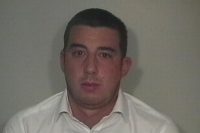Richard Boynton was jailed for two-and-a-half years for scamming his employers out of £50,000 ($62,196/€55,876).
Huddersfield Daily Examiner reported on Boynton’s sentencing, with the former “trusted” ICT manager at Shelley College in Huddersfield, England jailed after “admitting conspiracy to steal” from his employer. The 31-year-old ordered goods “in the school’s name” before “then selling them on the internet”, with Leeds Crown Court hearing that his “dishonesty came to light in 2013 after an anonymous tip-off that items were being taken off-site by IT staff”.
In his role, Boynton was responsible for “ordering IT equipment and making sure it was kept secure and documented on the college’s asset register”, with prosecutor Patrick Palmer noting that Boynton was on a salary of £30,000 ($37,317/€33,526) and “had access to a budget” of £250,000 ($310,980/€279,384). After the tip-off, inquiries found that “some of the items ordered” over two years, such as Samsung hard drives and Intel i7 computer processors, “could not be found”.
In addition, the processors “were not even compatible with the equipment used in the school”, with checks revealing that some “had been sold through an eBay account within days of their purchase” to three men, one of whom “made subsequent requests to Boynton for equipment”, and paid into his account “for what was supplied”. Palmer claimed that “these transactions, say the prosecution, indicated Boynton was stealing to order”.
With the overall loss to the college reaching £50,000, Boynton was found to have made around £18,900 ($23,510/€21,121) from the sales, Palmer adding that a delivery of toner cartridges worth £6,000 ($7,463/€6,705) “had not arrived but had been picked up by another member of staff”, James Bellamy, who “appeared in court for sentenc[ing] along with Boynton”.
Bellamy had been employed as an IT technician at the school, and maintained computer systems alongside Boynton and ordering cartridges, and his salary was £21,000 ($26,122/€23,468), while he had a budget to spend £50,000 to £60,000 ($74,635/€67,052). Palmer added that “over the period of the conspiracy” around £44,000 ($54,732/€49,171) in toner cartridges had been “ordered for printers the college did not possess”, with these “collected from the suppliers and taken to Boynton’s home address”.
Here, they were then “sold on”, with the total loss to the college from the two men’s scams around £100,000 ($124,392/€111,753). Analysis of Boynton’s accounts found that there were “payments to and from gambling companies” for over £100,000, and when arrested, he had “claimed to be a successful gambler”, adding that “he had funded his purchasing [of] equipment privately”. These had been delivered to the school, and Boynton “denied he had stolen stock ordered for the school”.
Michael Walsh, representing Boynton at the trial, said Boynton “deeply regretted what he had done, which was out of character”, and that he had previously been “regarded as an upstanding member of the community”, with the scam beginning after he was “diagnosed with a tumour in 2010 which had to be removed”, and he was “tempted to try and make some provision for himself and his partner”.
After major surgery, and returning to work, he “realised how easy it was to take advantage of the system”, and had later “moved on with his life” to another job, while Bellamy’s defence Carl Kinglsey stated that he had “played a limited function” and “received very little”, and he pled guilty, receiving nine months in prison “suspended for two years” and 300 hours of unpaid work.

